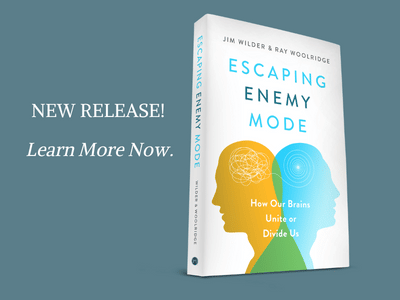I had a great discussion the other day with a friend who asked some probing questions about ministering to someone in deep grief.
We tossed around some thoughts about the differences in every-day negative emotions and deep emotions from grief. It’s my opinion that they are a bit different although there are some parallels.
The six basic negative emotions usually last about 90 seconds.
If we have the brain skill of returning to joy (being glad to be together again) from these basic six, then all is well. If we don’t know how to return to joy from any one of them, the 90 seconds might pass, but we will be left in pain that has to be avoided, denied, or buried.
When in deep grief, the terrible pain may last around 90 seconds before we take a breath to blow our nose or breathe, but it will come right back in full force.
Grief pain is attachment pain, the worst pain we can feel when someone we want to be with is not available.
If they are unavailable through death, this pain is nearly unbearable. We may even feel we want to die as well. We might feel hopeless, thinking life can never go on again.
So the conversation with my friend focused on how to sit with, listen to, or encourage someone in deep pain such as grief.
This friend of mine has the ‘’gift of encouragement’’ and as we talked about sitting with someone without trying to fix their pain, she seemed taken aback. How could she fit that with her very precious gift?
Would she have to go against who God has made her to be?
I asked my friend to define “encouragement.” I had an inkling what that definition would be. Most of us think along the same lines—encouragement is about helping someone feel better.
As we talked, we realized that encouragement is part of being with someone in their pain, but encouragement is more effective after we have validated and comforted.
Validation helps us focus on how truly painful the hurt is; how it’s OK to admit how bad it hurts. Validation gives us permission to feel as bad as we need to feel. Do we take the chance that the hurting person might hear permission to harm themselves? Perhaps. But more likely it will help them accept the pain instead of battling it.
Fighting pain does not work very well.
Validation helps us see we are not alone and that someone is at least trying to understand how bad it feels. Validation says something like, “I cannot imagine how much this hurts and I am so sorry.” We can add encouraging suggestions later with ways that might help them get through their deep hurt.
Comfort, via voice tone, body language, proper touch, and facial expressions, has a non-verbal calming effect on hurting people. It’s not our words that help as much as the tone. Both comfort and validation communicate almost on a sub-conscious level that we are not alone, we are loved, and someone cares that we are hurting.
So, back to the conversation with my very encouraging friend. I realized that encouragement works really well when I am having some kind of relationship problem, I’m confused about something, and/or I am feeling discouraged. I want to hear how it will be better, what I can do to make it better, that there is nothing wrong with me, and God is on His throne.
When in deep grief, there is really nothing that can make it better. It’s not about feeling better, it’s about feeling.
We just need someone to be with us, someone to listen, and someone to let us feel what we need to feel without shame or fear that we aren’t trusting God somehow. The only way to get through is to go through—and we do this best when not alone. It’s so helpful to have that support from someone who is like Jesus with “skin on.” And, for those times when there is no friend or family to help, we can try to remember that Jesus is always with us; He understands. And we cling to Him as best we can, because He is the best at validation and comfort.
“Blessed be the God and Father of our Lord Jesus Christ, the Father of mercies and God of all comfort; who comforts us in all our affliction so that we may be able to comfort those who are in any affliction with the comfort with which we ourselves are comforted by God (2 Corinthians 1:3-4).”

We Never Outgrow the Need to Receive
By Claudia Hendricks When we hear the word “infant” our mind instantaneously tends to dismiss the topic thinking it does not concern us as adults.








